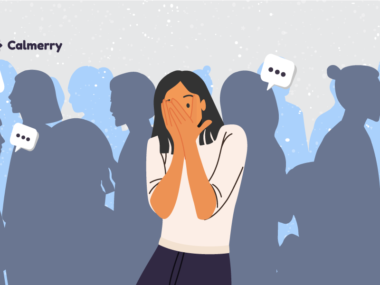Teenagers frequently experience anxiety, especially when they balance academic and social responsibilities. Teenagers’ anxiety, though, can often become excessive and interfere with their daily life. Knowing how to recognize early indications of anxiety symptoms in your adolescent and getting the right diagnosis and treatments is crucial if you’re a parent or caregiver. This article will give a general review of the early indications of teen anxiety, go over teen anxiety diagnosis, and provide advice on various forms of treatment.
Early Signs of Anxiety in Teens
There are several early signals to watch out for in teenagers, though anxiety symptoms can appear in many ways depending on the individual. Early indications of anxiety could include:
- Difficulty Concentrating: Teenagers may find it difficult to focus on their studies or other chores because of ongoing concerns or racing thoughts.
- Social Withdrawal: Teenagers may begin to avoid social events and retreat from friends and family as a result of social withdrawal.
- Physical Symptoms: Teenagers may feel bodily symptoms such headaches, nausea, tense muscles, and exhaustion.
- Irritability: Teenagers may get easily agitated, which may be brought on by underlying anxiety.
- Changes In Sleeping Patterns: Teenagers who worry constantly may have trouble going asleep or staying asleep.
- Changes In Eating Habits: Eating patterns may alter for teenagers, causing them to consume more or less food than usual.
It’s crucial to remember that some teenagers may choose to keep their fears to themselves rather than publicly show their anxiety.
Diagnosis of Anxiety in Teens
It’s crucial to seek a professional diagnosis if you think your teen may be experiencing anxiety. Your teen’s symptoms can be assessed by a mental health specialist to see if they fall within the umbrella of an anxiety disorder, such as a psychologist or psychiatrist. A physical examination to rule out any underlying medical disorders, a psychological assessment, and a study of your teen’s family and medical history may all be part of the diagnostic process.
Types of Anxiety Disorders
Teenagers are susceptible to a variety of anxiety disorders, such as generalized anxiety disorder, social anxiety disorder, panic disorder, and obsessive-compulsive disorder. The symptoms and available treatments vary depending on the type of anxiety disorder.
Persistent and excessive worry about a variety of everyday issues is a hallmark of generalized anxiety disorder (GAD). An extreme fear of social situations and avoidance of them are symptoms of social anxiety disorder. Unexpected panic attacks, which are a sign of panic disorder, can result in bodily symptoms including a racing heart, perspiration, and trembling. Obsessive-compulsive disorder (OCD) is characterized by recurrent, bothersome thoughts or urges (obsessions) and repetitive actions or mental rituals (compulsions) intended to squelch or lessen distress. [Read: Situational Depression: Understanding Symptoms, Causes, and Treatment]
Treatment Options for Teens with Anxiety
Once your teen has received a diagnosis of anxiety, there are a range of treatment options available. These may include:
- Cognitive-behavioral therapy (CBT): CBT is a type of therapy that focuses on changing negative thought patterns and behaviors. It can be an effective treatment for anxiety in teens.
- Medication: In some cases, medication may be prescribed to help manage anxiety symptoms. Antidepressants, benzodiazepines, and beta-blockers are some of the medications commonly used to treat anxiety.
- Relaxation techniques: Relaxation techniques, such as deep breathing exercises and progressive muscle relaxation, can help your teen manage their anxiety.
- Lifestyle changes: Encourage your teen to engage in healthy habits such as regular exercise, good sleep habits, and a balanced diet. These habits can help reduce stress and promote emotional well-being.
Final Thoughts
Teens who suffer anxiety may find it difficult, but with the correct diagnosis and care, they can learn to control their symptoms and live happy, productive lives. It’s crucial for parents and other adult caregivers to be aware of the early indications of teen anxiety and to get your teen the right kind of professional support if you think they may be having problems.
Keep in mind that every teen is unique, and anxiety symptoms can present themselves in different ways. While some teenagers may talk openly about their concerns, others might prefer to keep them to themselves. Keep lines of communication open with your teen and invite them to talk to you about their feelings.
You can support your kid in other ways besides turning to professionals at home. Help them to adopt healthy routines, such as consistent exercise and restful sleep, and show them compassion and understanding as they overcome their worry.
With the proper care and support, your teen can learn to control their symptoms of anxiety and lead a happy and productive life. Do not hesitate to seek out professional assistance if you believe your teen is experiencing anxiety.





